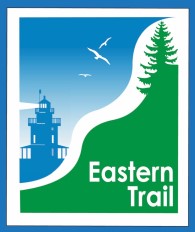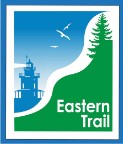ETA note: Coverage on this site of the federal Transportion bill, and what it might mean for trails and bicycling programs, started on February 13. This latest version of the report was updated March 14.
As some of you may have heard, there is a major legislative battle going on around the federal transportation bill. Many friends in the national bike advocacy groups have pulled out all the stops to get the Senate version of the bill passed containing provisions that help trails and bicycling programs. Click here for one news report on the bill’s passage.
Many friends here in Maine were also active in contacting Maine’s two Senators to urge their support for the bill. Click here to read the City of Saco’s Resolution in Support of Transportation Enhancement, Recreational Trails and Safe Routes to School (passed Feb. 28, 2012)
THANK YOU very much for your efforts to help protect trail funding.
The Senate passed its version of the transportation bill on Wednesday, March 14.
An email alert sent March 13 by Kevin Mills of the Rails-to-Trails Conservancy provides some good information on the eve of the bill’s passage:
“Thanks to your valiant support, I am thrilled to report that because of bipartisan bill changes just filed by Senate leaders, we expect that a final Senate transportation bill will include two amendments that restore the integrity of trails, walking and bicycling programs.”
“Under the bill as passed by the Senate Environment and Public Works Committee last November, Transportation Enhancements (TE), Safe Routes to School (SRTS) and the Recreational Trails Program (RTP) would have become severely crippled.”
“But the incorporation of these two amendments is a huge step forward for trails and active transportation. A vote on final passage of the bill is expected very soon, but I couldn’t wait to tell you about this important breakthrough for trails and active transportation. The bill will ensure greater local access to funds and a fair shot at approval for the most beneficial projects, and it preserves decision-making structures that enable public participation and well-balanced trail systems. The messages you sent your senators made an enormous difference.”
Mr. Mills goes on to report on what is happening in the House of Representatives:
“Meanwhile in the U.S. House of Representatives, the draft transportation bill (H.R. 7) failed to attract enough support. We do not yet know whether the House will change its own bill, take up the Senate’s bill, or simply move to extend funding under existing law.”
“But House leaders must act fast, as the clock is ticking on the current transportation law, set to expire on March 31. As always, we will seek your assistance when necessary to defend TE, SRTS and RTP so they can continue to make our communities healthier, wealthier, safer, cleaner and more enjoyable. (For more on the bill debate, see this excellent Hill article.)”












0 comments
Write a comment